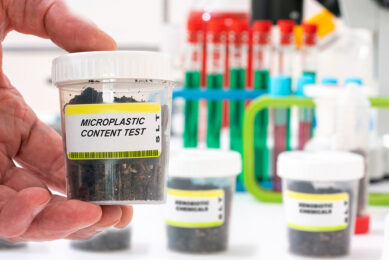Optivite launches new omega-3 formulation
Optivite, a UK based animal nutrition company, has developed a new carrier system for its Optomega-50 omega-3 fatty acid supplement. The result is a free flowing easy to use product which can be more easily incorporated into all feeds including concentrates and mineral supplements.
“This new formulation follows significant investment in a new production line at our Manton Wood site,” explained Optivite’s director of nutrition Richard Remmer. “The source of the omega-3 fatty acids is salmon oil which is one of the richest sources of the most biologically active omega-3’s EPA and DHA.”
Modern diets are typically deficient in omega-3 fatty acids and contain high levels of omega-6 fatty acids. The reduction and / or removal of fishmeal has also further exacerbated this situation.
Omega-3 fatty acids play a key role in hormone synthesis and, because of this, are able to influence many of the key metabolic functions within the body. Studies show improved immune response and reduced inflammation particularly in young animals and birds which is vital in ensuring good early life performance. They also show the continued benefits of Omega-3 fatty acids throughout the production cycle.
Studies in pigs show improved brain development in piglets resulting in increased vitality and survival pre-weaning. Stronger healthier pigs at weaning will help to reduce the number of days to slaughter and also improve unit throughput.
“Optivite has also been involved in several large studies with poultry which have found significant improvements in the performance of broilers,” said Richard Remmer. “They show a considerable increase in bone strength and stiffness as well as size and weight which is of great relevance to processors as a reduction in broken bones has huge welfare benefits.
“The findings are also applicable to layers, particularly in barn and free range situations, where bone breakages are a serious problem. Recent work shows omega-3 also has anti-bacterial effects and this is something we are studying further.”
Increasing the level of omega-3 fatty acids in eggs is also possible with Optomega-50. This is a growing market in many countries around the world as it enables another source of omega-3 rich food to be available for those who do not like oily fish, particularly children.
Studies among ruminants have shown huge improvements in fertility to be possible by supplementing omega-3 fatty acids. This is critical because as milk yields increase fertility tends to decrease.











